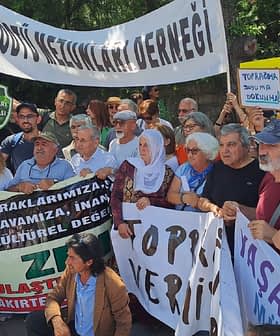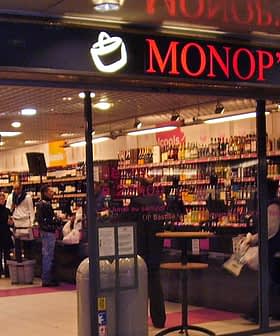Filippo Berio Consumers Receive Payout of 50 Cents Per Bottle to End Lawsuit
Certified consumers of Filippo Berio olive oil who said they were misled into buying olive oil 'Imported from Italy' will receive a payout of 50 cents per bottle, but the plaintiff's attorneys may ask the court for up to $1 million in fees.
Consumers who claimed they were misled by Filippo Berio olive oil labels stating ‘Imported From Italy’ have reached a preliminary settlement with the brand’s importers, Salov North America Corp and Italfoods, Inc. Under the proposed settlement, class members will receive 50 cents per bottle purchased, while the plaintiff’s attorneys may receive up to $1 million in fees. The lawsuit alleged that the ‘Imported From Italy’ label was misleading as the olives used were grown and pressed in other countries, leading to the settlement terms of removing the label and providing monetary compensation.
A group of consumers who claimed they were misled when buying Filippo Berio olive oil that carried ‘Imported From Italy’ labels asked a California federal court this week to give initial approval to a preliminary settlement with the brand’s importers, Salov North America Corp and Italfoods, Inc.
New-Jersey-based Filippo Berio is the third-largest olive oil brand in the United States, with sales of $137.4 million in 2015.
See Also:Salov North America Class Action
Under the terms of the proposal, the certified class members will receive a payout of just 50 cents for each bottle of olive oil they purchased, while the plaintiff’s attorneys may ask the court for up to $1 million in attorneys fees from Filippo Berio, as stated in the proposed order.
On May 23, 2014 a 29-page lawsuit was filed against Salov. The lead plaintiff was a Californian woman, Rohini Kumar, who alleged that Salov committed fraud by making misleading claims that Filippo Berio olive oil was imported from Italy on the front of the label of the oil, while small print on the back of the label indicated that some olives were grown and pressed in other countries (Tunisa, Greece and Spain).
According to the complaint, the “Imported from Italy” statement on the label was a clear violation of the business practices of the 1930 Tariff Act, 19 U.S.C. § 1304(a).
Kumar initiated a class action suit against Salov in the Northern District Federal Court of California in July 2014. In the same class action suit, Kumar also argued that Salov committed fraud by deceiving customers into believing the oil was extra virgin. It once may have been extra virgin, the complaint stated, but it would have degenerated by the time it reached the consumer due to having been packaged in clear bottles that caused oxidization when exposed to sunlight.
Next, Salov dismissed Kumar’s claims by filing a threefold motion. The first claim that Kumar lacked standing to bring the action was rejected by the Court on February 3, 2015. District Judge Yvonne Gonzalez Rogers stated: “The possibility of future injury is alleged sufficiently if the plaintiff would encounter the same statements today and could not be any more confident that they were true.”
Salov’s second claim that Kumar had no standing to use the extra-virgin fraud claim because she failed to show injury in fact, was also rejected. The Judge decided that Kumar needed not “prove that the particular bottle of oil she purchased had, in fact, degraded to the point of not being extra virgin,” and quoted Judge Seeborg in a similar case: “Each consumer who purchases extra virgin olive oil is entitled to receive oil that meets that definition by design, not by happenstance.”
The Court went on to reject Salov’s third claim that Kumar lacked standing because she bought only one product and brought claims against a wide array of products. “This is a matter to be considered at the class certification stage, not the pleading stage,” ruled the Court.
Finally, the Court found adequate misconduct specifics for the pleading stage, though it decided in Salov’s favor that there was no breach of contract and that Kumar’s claim of breach of covenant of good faith and fair dealing was insufficiently pleaded.
Fast forward to January 2016, U.S. District Judge Yvonne Gonzalez Rogers allowed Kumar to drop her claims pertaining to the product’s supposed “extra virgin” quality and, instead, to emphasize its ‘Imported from Italy’ labels.
Two months later, however, in a statement saying that Kumar lacked sufficient proof that she had even bought a bottle of Filippo Berio, Salov made a motion to dismiss the class action lawsuit, which was followed by a motion by the plaintiff.
In the same motion, Salov stated both consumers and Kumar lacked evidence they had misinterpreted ‘Imported from Italy’ to mean that the Filippo Berio olive oil was only made from Italian olives, as the dictionary defines “imported” as also “shipped out of.”
To back this claim, Salov pointed to a statement at the back of the olive oil bottles near the “best by” date, which was a disclaimer revealing that the olive oil originated from different countries.
The Judge then said class members could submit proof of purchase on a class action Claim Form Affidavit.
Salov also claimed Kumar’s honesty and credibility were at stake due to her drunken driving conviction and acquaintance with an attorney from the firm representing her in this case.
Judge Gonzalez Rogers ruled that both the drunken driving charges and her personal friendship with an attorney were irrelevant to the present case.
In the summer of 2016, Judge Rogers eventually certified the Filippo Berio consumers who purchased olive oil of any grade between May 2010 and June 2015 (the Judge did not certify a specific organic variety). Upon certification, the company and class members took the suit to mediation, where they laid out the terms that would lead to settlements. These stated that the company ought to remove ‘Imported From Italy” from its labels and write just ‘Imported,’ while Salov agreed not to use the ‘Imported from Italy’ on its labels for a minimum of three years.
So, for the time being, each member of the settlement class can submit a claim for 50 cents per Filippo Berio product purchased, with a guaranteed minimum of $2 worth of valid claims, whereas members must produce proof of purchase for products amounting to more than $5.
On the other hand, Kumar’s attorneys may receive approximately $982,500 from Salov for attorneys’ fees, in keeping with the proposed order.









